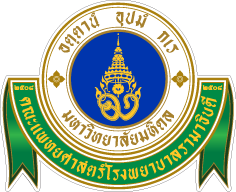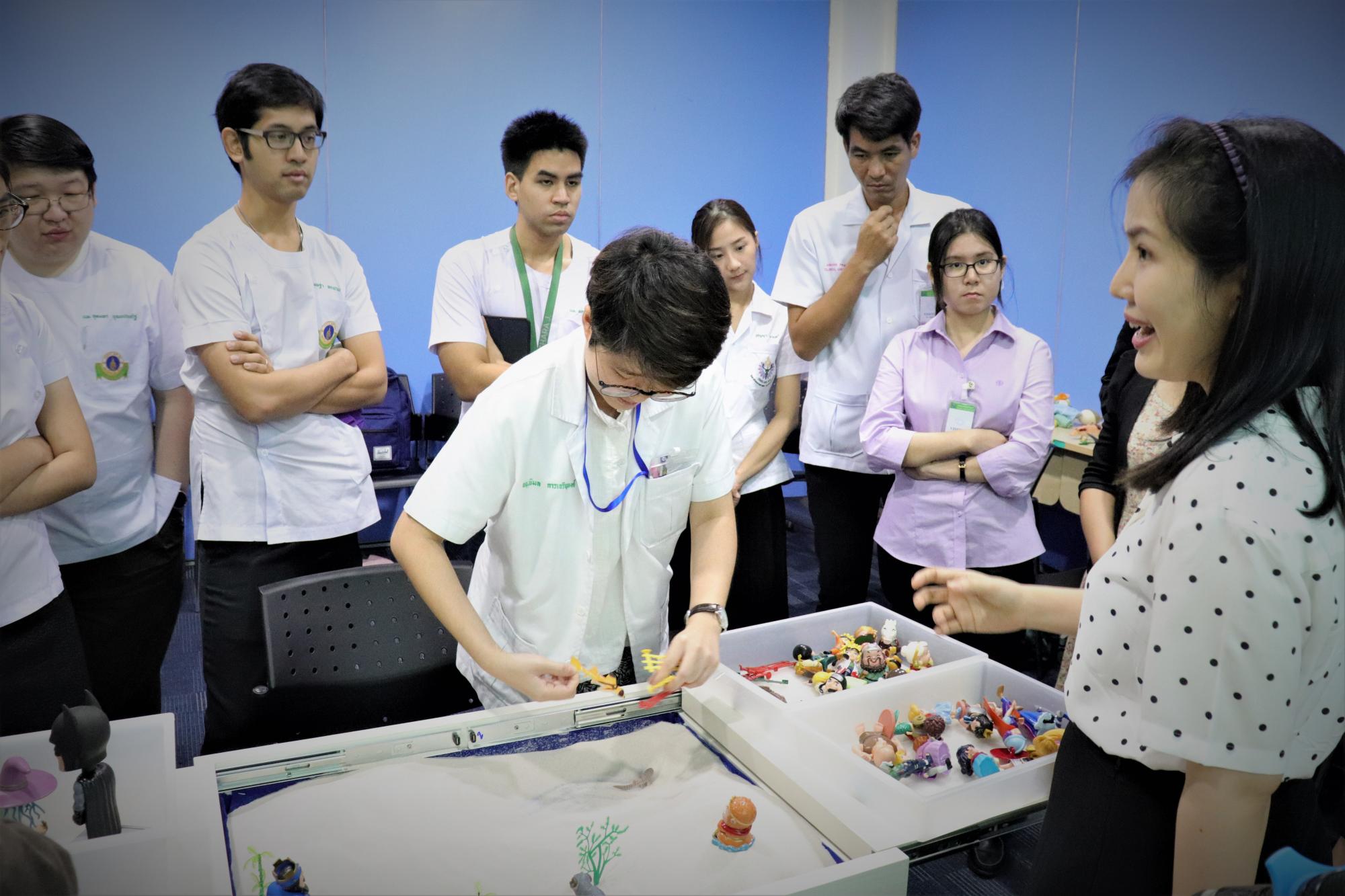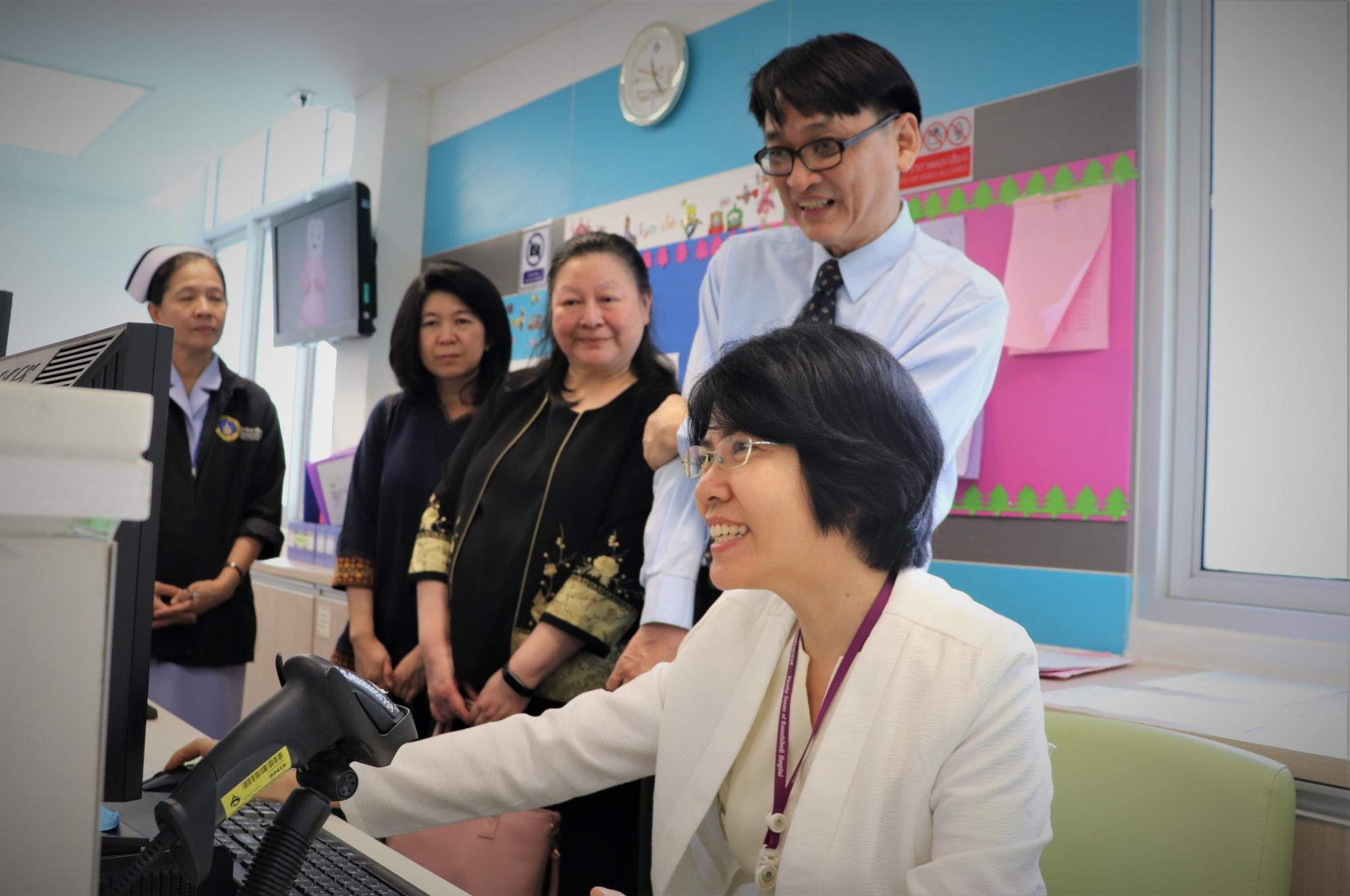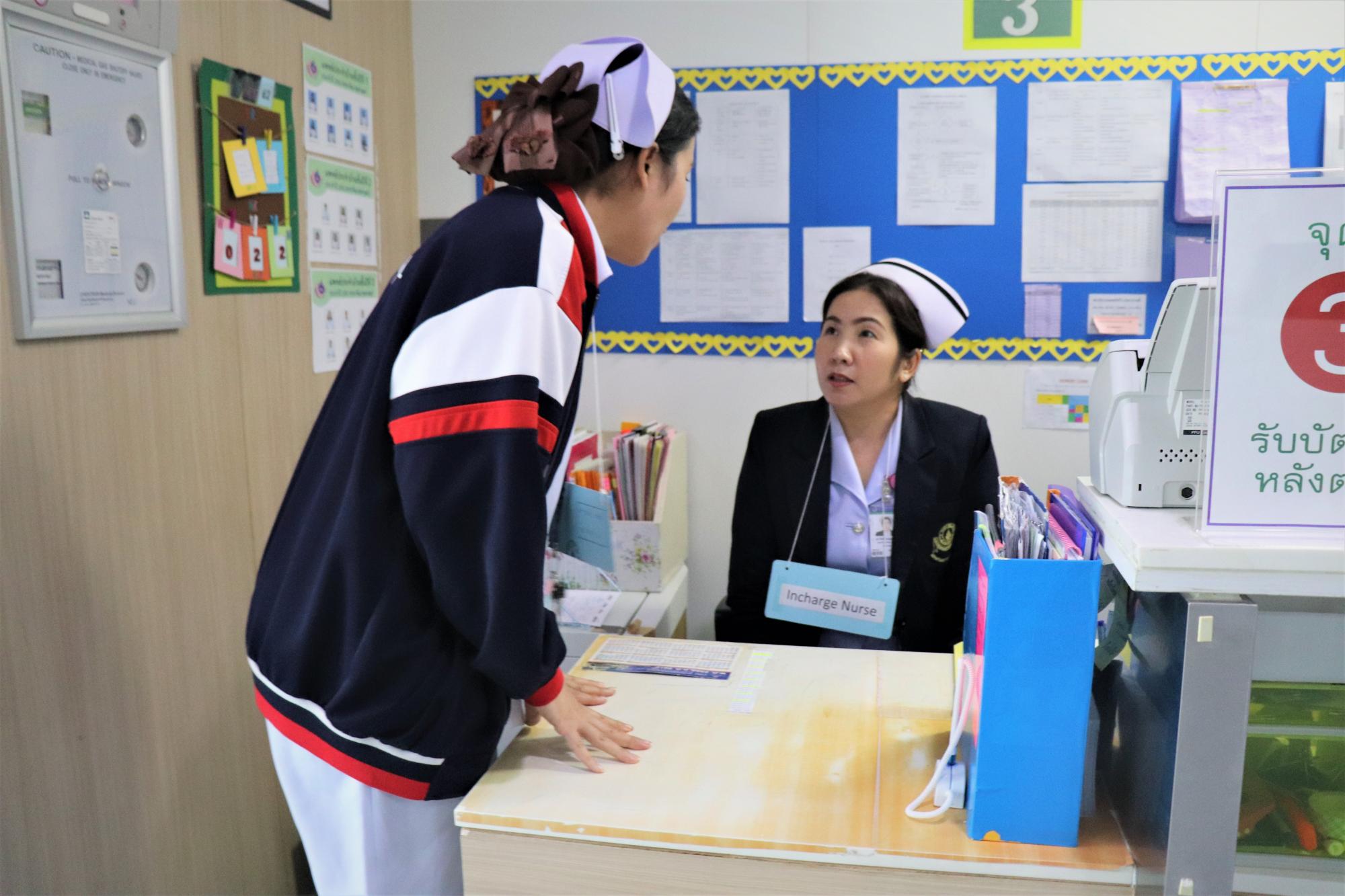Department of Psychiatry, Faculty of Medicine Ramathibodi Hospital, Mahidol University

History of Department of Psychiatry
The Psychiatry Unit of the Faculty of Medicine Ramathibodi Hospital began since 8th June 1971,
which was a Psychiatry Unit under the Department of Medicine was the only one responsible
for teaching psychiatry and providing services to psychiatric patients.
At that time, the Psychiatry Unit was responsible for teaching years 5th and 6th medical students along
with the teaching of undergraduate level in the subject Psychiatry and Mental Health for other students
and graduate level students of Faculty of Medicine Ramathibodi Hospital by obtaining help
from adjunct lecturers from the associated institute of the Faculty in teaching and supporting medical students
for internships since the beginning till date.
In addition, the Psychiatry Unit also provided service for both outpatients and inpatients,
consulted inpatients from other departments and the Emergency Medicine Unit,
including clinical psychology testing and academic services.
On 3rd April 1980, the Psychiatry Unit had been established as the Department of Psychiatry
with the administration office and outpatient department at 2nd floor of Building 1.
The office of the department was then moved to the 7th floor of Building 3 on 31st August 1982,
and moved the outpatient department to 2nd floor of Building 2 on 18th April 1983. Later,
the Faculty of Medicine Ramathibodi Hospital had established the Queen Sirikit Medical Center (QSMC)
and Department of Psychiatry was approved to establish the psychiatric patient unit on the 3rd floor
and had been officially opened since 17th July 1995.


At present, the Department of Psychiatry, Faculty of Medicine Ramathibodi Hospital is responsible
for the teaching of students at undergraduate level, i.e., 4th year medical students, and graduate level
such as residency training in psychiatry, child and adolescent psychiatry, and Master of Science
in child, adolescent and family psychology.

In terms of medical services, the Department of Psychiatry provides diagnosis and treatments
for specific psychiatric patients such as Dementia Clinic and Learning Disability in Children Clinic.
The Department of Psychiatry currently has many other clinics including for obsessive-compulsive disorder,
insomnia, psychotherapy, family therapy and electroconvulsive therapy (ECT Center).

Moreover, the department has also been organizing regular workshops and trainings on enneagram
personality development and SATIR Transformational Systemic Therapy.
Vision “To be a leading medical institute in psychiatry and mental health internationally.”
Mission of the Department
1. Mission on Education: responsible for the teaching of 5 courses which are;
1.1. Psychiatry training for residency, certification of knowledge and expertise medical practice in adult psychiatry
1.2. Diploma of the Thai Subspecialty Board of Geriatric Psychiatry
1.3. Psychiatry training for residency, certification of knowledge and expertise medical practice in child and adolescent psychiatry
1.4. Medical Doctor in Psychiatry
1.5. Master of Science in Child, Adolescent and Family Psychology


2. Mission on Research: the professors in the department conduct clinical research in psychology,
social and others. The works have been published in various journals at national and international levels,
along with research presentations at academic conferences at both national and international levels.

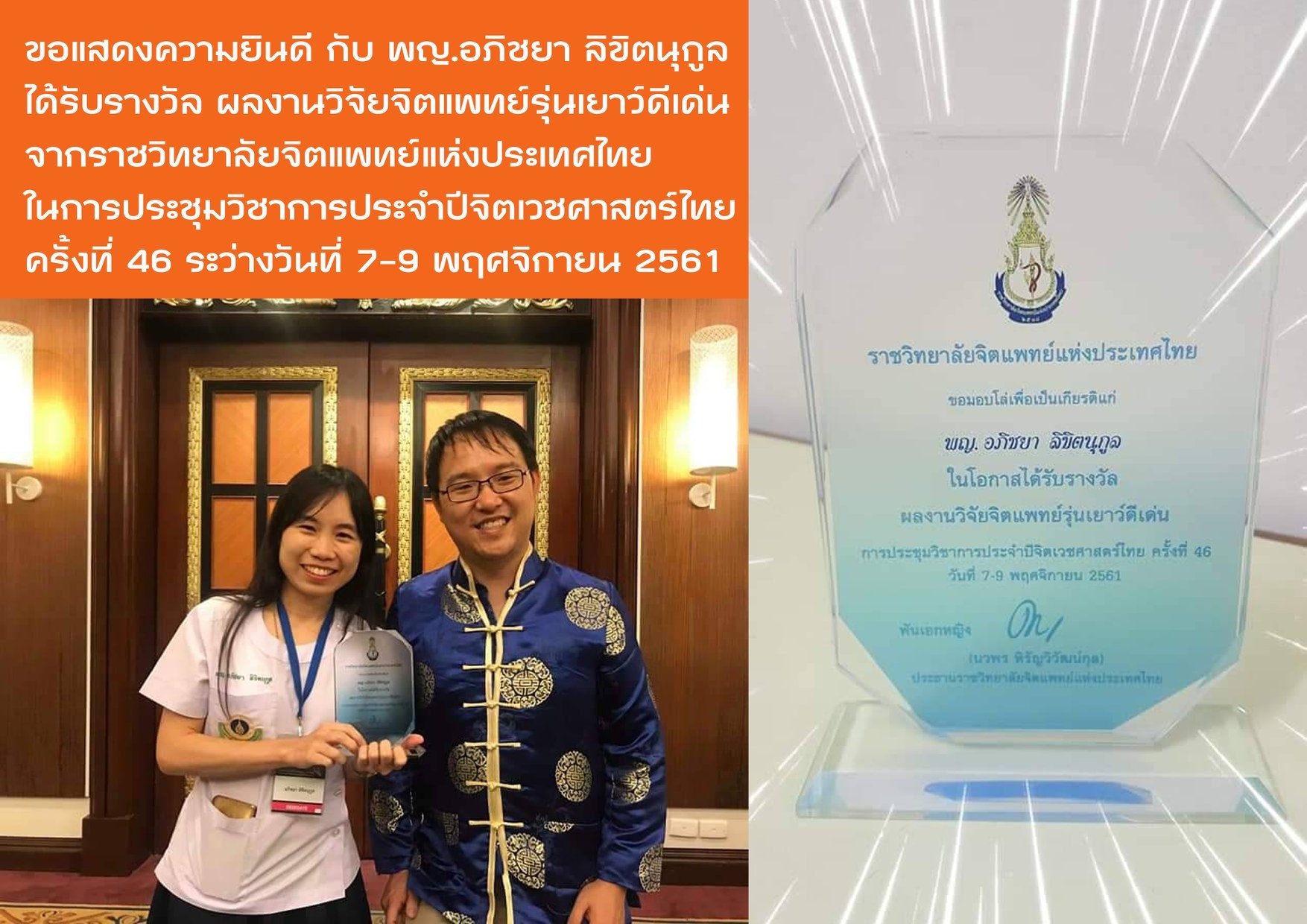
3. Mission on Medical Service: responsible for the diagnosis and treatment of outpatient department (OPD)
in general psychiatry, child and adolescent psychiatry, psychotherapy, psychological testing, and consultation.


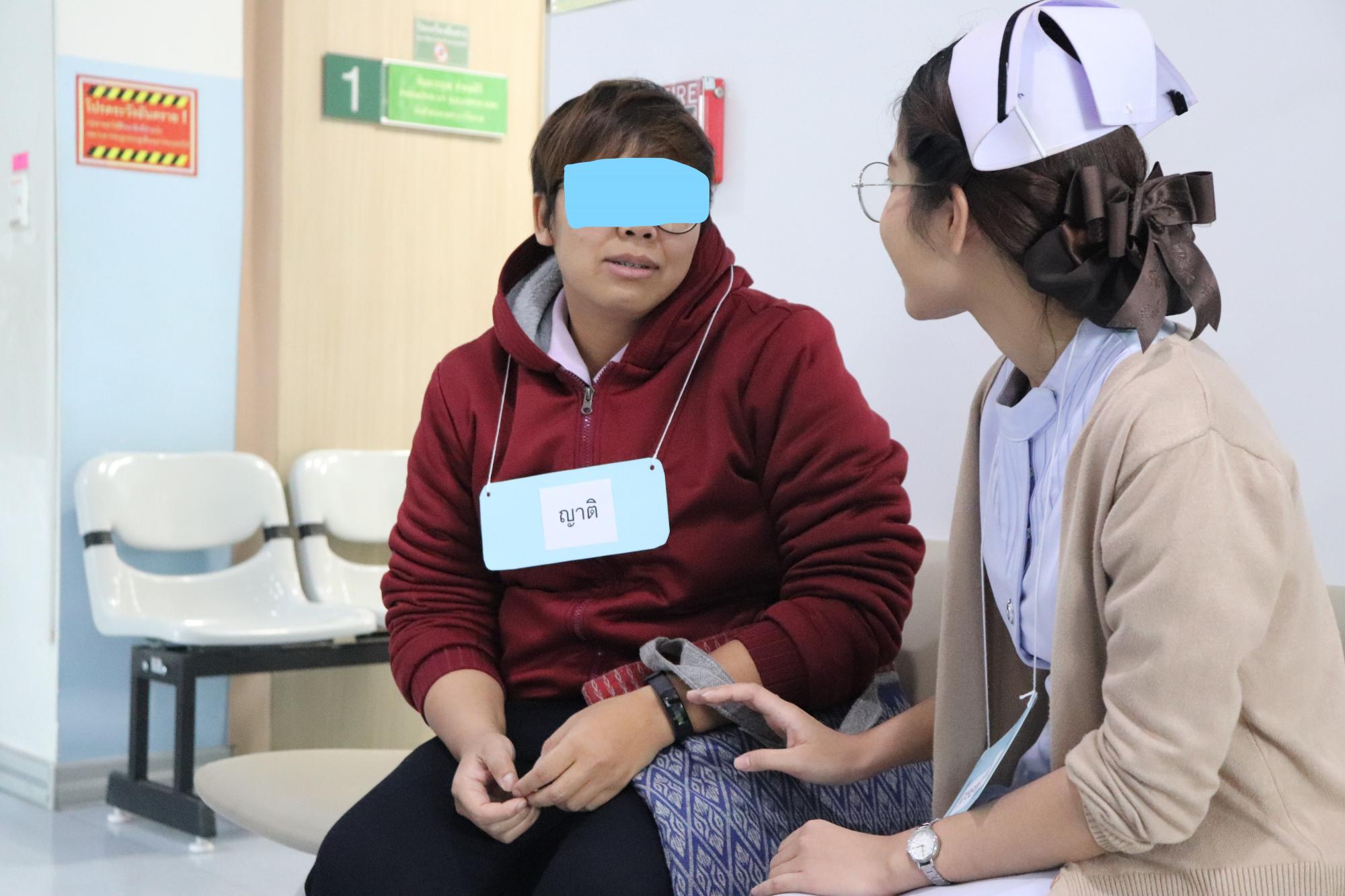
4. Mission on Academic Service: organize academic conferences, publicize knowledge to society via various media
including printouts, radio, television, social media and organize lectures and guidance on psychiatry
for teachers, parents and students on a regular basis.

Curriculum’s quality according to the WFME standard
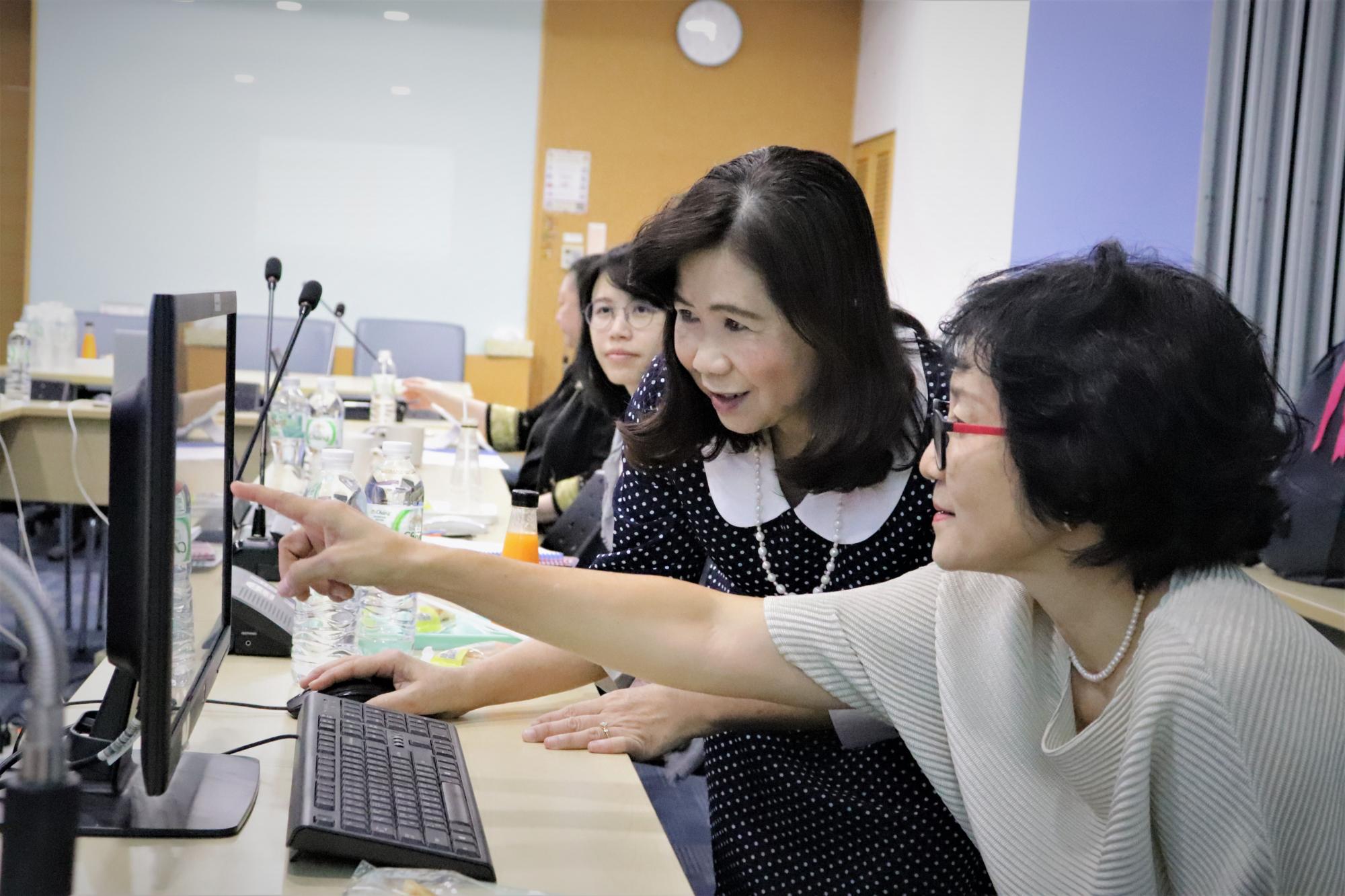
Mission of training/curriculum based on WFME standards
in training doctors to become experts in psychiatry with important features as follows:
-
Have appropriate and comprehensive knowledge in the practice of psychiatry.
-
Have the ability to solve problems including health promotion based on the patient for a holistic care
and always concerned about patient safety. -
Have the professionalism in continuous self-learning along with research capabilities to create new knowledge.
-
Have communication and interaction skills to collaborate for multidisciplinary treatment as a team
by being an academic leader simultaneously. -
Have the ability to manage and understand the health system with quality development process.
-
Have responsibility with ethics of a psychiatrist, have a positive attitude towards patients, colleagues
and the organization to maximize the benefits of psychiatric services. -
Always consider the health needs of the community, society, health service system and have other views for social responsibility appropriately.
-
The training process focuses on the integration of theory and practice through patient care in order to be proficient
and able to work independently without supervision, along with oriented learning experience and innovations
that emphasize proper learning processes, including comprehensive measurement and evaluation of training results. -
The training also considers appropriate working conditions and good balance of trainee's health with curriculum governance and periodic evaluation.
-
The identity of the course is to focus on personal development by encouraging the search process and understanding of the potential
and limitation within oneself to lead to the development of professional competencies that are in line with personal interests and aptitudes.Outcome of WFME standard curriculum
- Patient Care
- Medical Knowledge and Skills
- Practice-based learning and improvement
- Interpersonal and Communication Skills
- Professionalism
- System-based practice
Residency Training in Psychiatry
Differences from other disciplines
A psychiatrist is a medical doctor with expertise in the care and treatment of individuals with abnormal symptoms or need help mentally
which are of several types such as hallucination, paranoia, behavioral change or anxiety, depression that disturbs daily routine.
While some individuals may have stress, insomnia, or require advice for some life difficulties.
Therefore, mental status examination is the most important stage in the evaluation and diagnosis process. On the other hand,
the prevailing abnormal mental symptoms could also be due to certain physical diseases that have not been diagnosed yet. Hence,
knowledge on diseases in various systems, especially the neural system is also equally important.
The treatment stage has 2 main categories involving treatment with medication, which are of various types along with continuous knowledge
development and management, and psychotherapy which is one of the most important tools for being a psychiatrist, it is the process of talking
to help the patients understand themselves, their problems and the source of their problem that will lead to changes expected by the patient.
Working as a psychiatrist
Psychiatrists are still very deficient in Thailand and there are efforts to increase the number to support the needs of patients. At the end of the training,
some psychiatrists will work at hospitals under the Ministry of Public Health, whose main duties are to diagnose and treat the patients in OPD and patients
in the ward including provide consultations from various departments and develop community psychiatric work, while some will work at a psychiatric hospital
under the Department of Mental Health in many provinces across the country and some may work in medical schools to become medical professors.
Qualification of a psychiatrist
An individual who is appropriate to be a psychiatrist must be interested and want to understand the life story of others, have sympathy and does not feel bored
or annoyed at having to listen to the suffering of others, must be interested in the subject of the mind, family and society.
When compared to other medical disciplinaries, psychiatrists may not have equivalent duty or working hours, but it is the work that requires a lot of constant concentration
and mental power, hence, it may not be called an easy work.
Differences of Psychiatry at Ramathibodi
The residency training in psychiatry at Ramathibodi aims to produce psychiatrists with expertise and good working attitude to benefit patients and society.
In addition, the course also prioritizes self-development from within, which is self-understanding in various strengths and weaknesses that lead to inner changes
to enable kindness towards oneself and others. This is because in the process of mental healing, the psychiatrist uses own self as an important tool.
Content and training process
In a 3-year course, the resident will be assigned with patients for continuous treatment as attending psychiatrist under the supervision of the professors.
The work will include outpatients, inpatients, patients in consultation from other departments, substance abuse psychiatry, forensic psychiatry, and community psychiatry.
The course emphasizes on self-research, supports analytical thinking, matter linking, and question asking through academic activities such as journal club, case conference,
topic seminars, and research along with skills in teamwork, communication, problem solving and leadership.
Evaluation and examination for certification
Periodic evaluation will be conducted annually throughout the training in terms of knowledge, clinical skills, and professionalism via written examination,
patient interview assessment, and practical evaluation. For certification, resident must submit a complete thesis and reports of psychotherapy for the committee to consider and approve.
Subjects in residency psychiatry
The Department of Psychiatry is currently offering 2 subjects and 3 courses as follows:
-
Psychiatry has 2 courses which are Residency Training in Psychiatry (Adult Psychiatry) and Fellowship Training in Geriatric Psychiatry (Subspecialty in Geriatric Psychiatry)
-
Child and adolescent psychiatry (Residency Training in Child and Adolescent Psychiatry)
Master of Science in Child, Adolescent and Family Psychology
This is a course that responds to the country's major problems along with the vision and goals of Mahidol University. It is the collaboration between the Department of Psychiatry,
Faculty of Medicine Ramathibodi Hospital, Department of Psychiatry, Faculty of Medicine Siriraj Hospital, and the National Institute for Children and Families Development.
Hence, there are faculties of various expertise and experiences from these institute, along with quality clinics for treatment of children and adolescents with mental problems.
In addition, there are productive activities that promote mental health and prevent mental health problems in children and adolescents, especially in school psychology
and in collaboration with community. This will induce practical learning from experience to enhance knowledge, ability and skills in psychology of children, adolescents
and family both theoretical and practical. The occupation opportunities after graduation are various such as child, adolescent and family psychologist, academic scholar in child,
adolescent and family psychology, and researcher in child, adolescent and family psychology.Medical Doctor Training in Psychiatry
Psychiatry is a compulsory subject of 3 credits in medical doctor training, comprising of both first and second semesters, where 15 - 20 medical students rotate to study throughout 4 years.
Students will learn about diseases and symptoms in psychiatry according to the medical guidelines by the Medical Council of Thailand, practice patient history interviews, mental health evaluation,
differentiate and diagnose different diseases and common psychiatric problems in general practice, emergency medical treatment, principles of helping psychiatric patients and their families,
psychiatric medication for general doctors, supporting psychotherapy counseling, along with mental health promotion and prevention of mental health problems.
